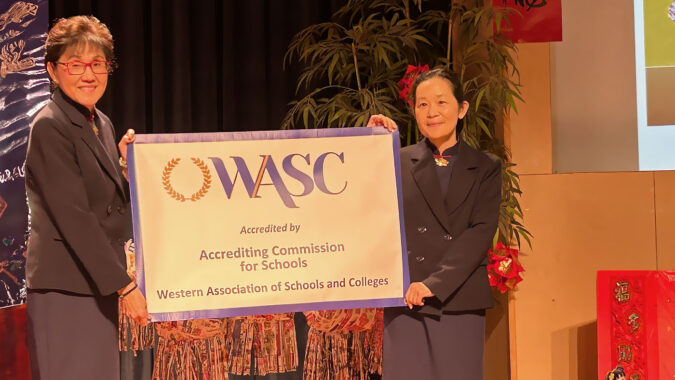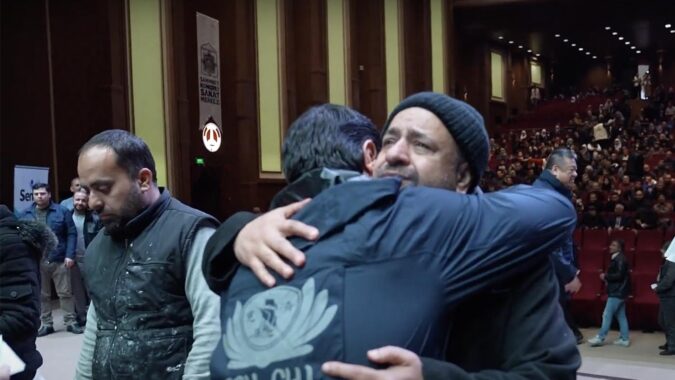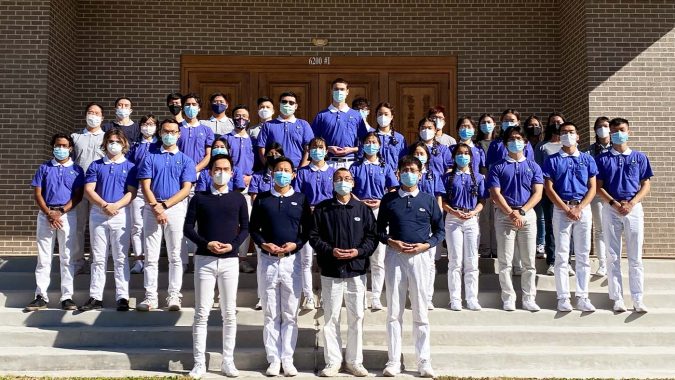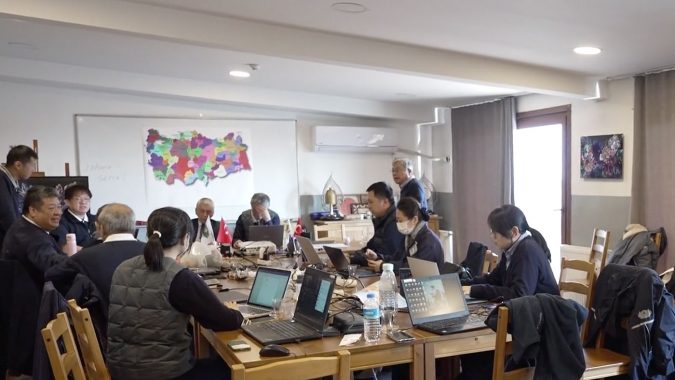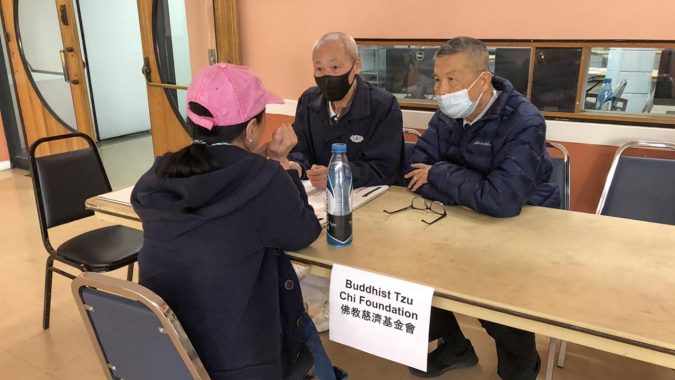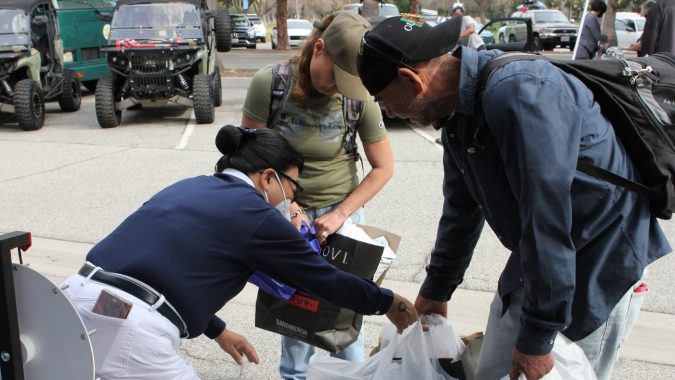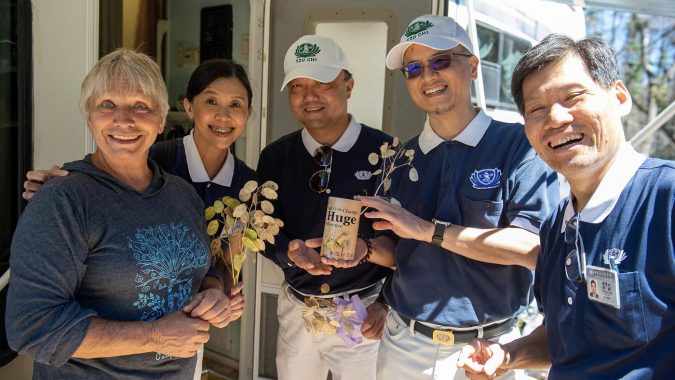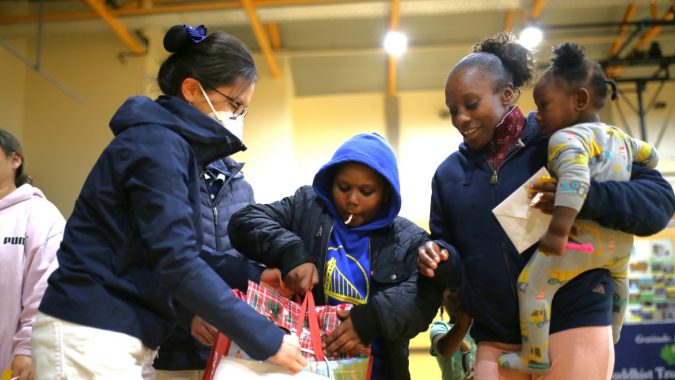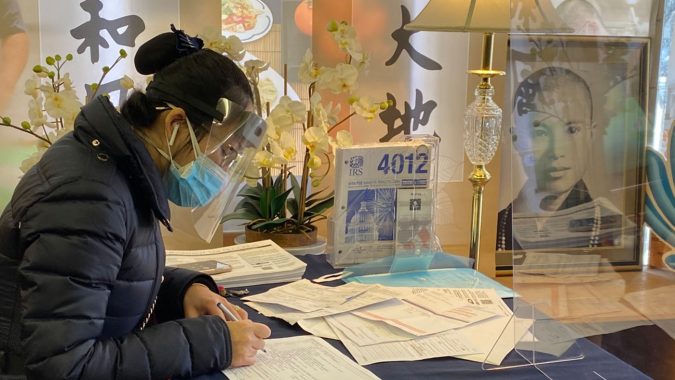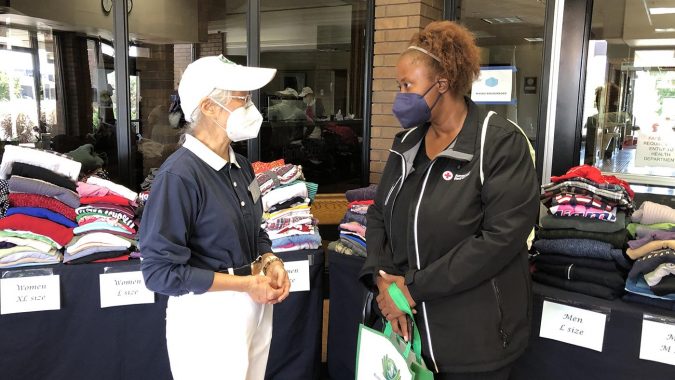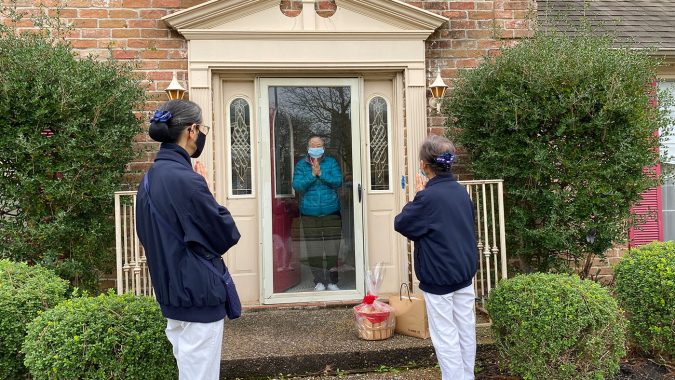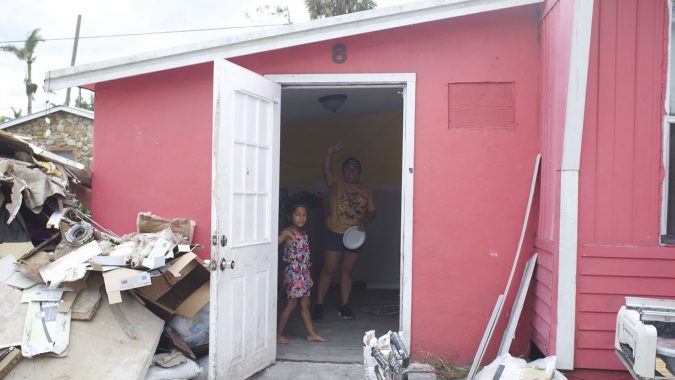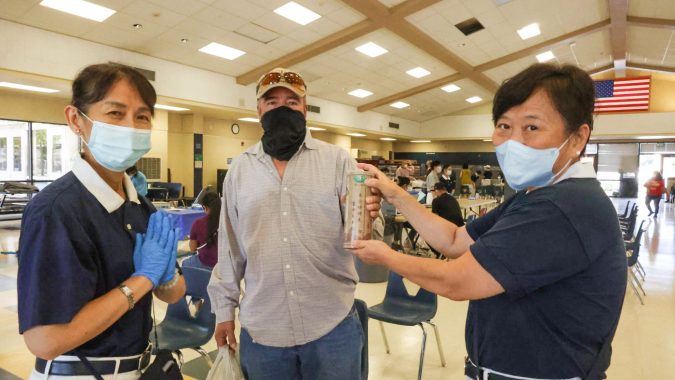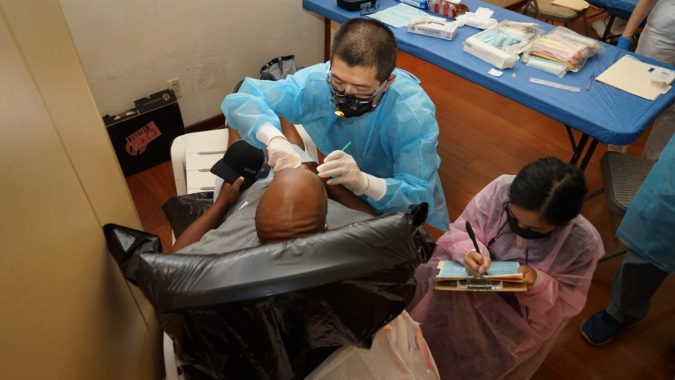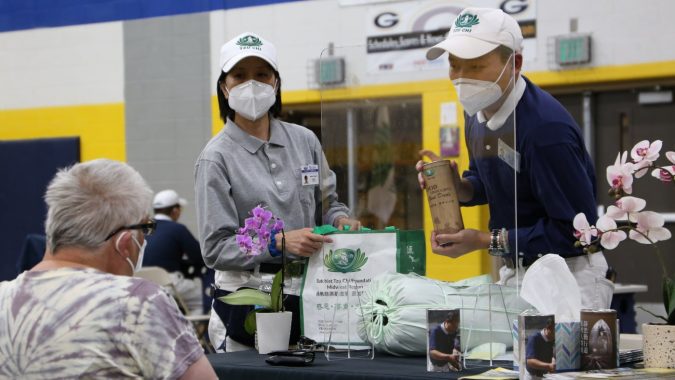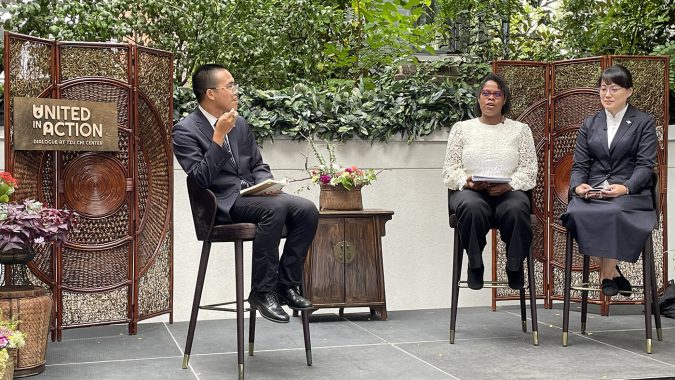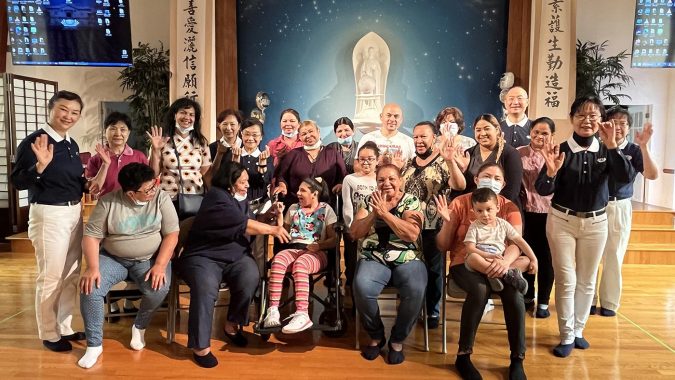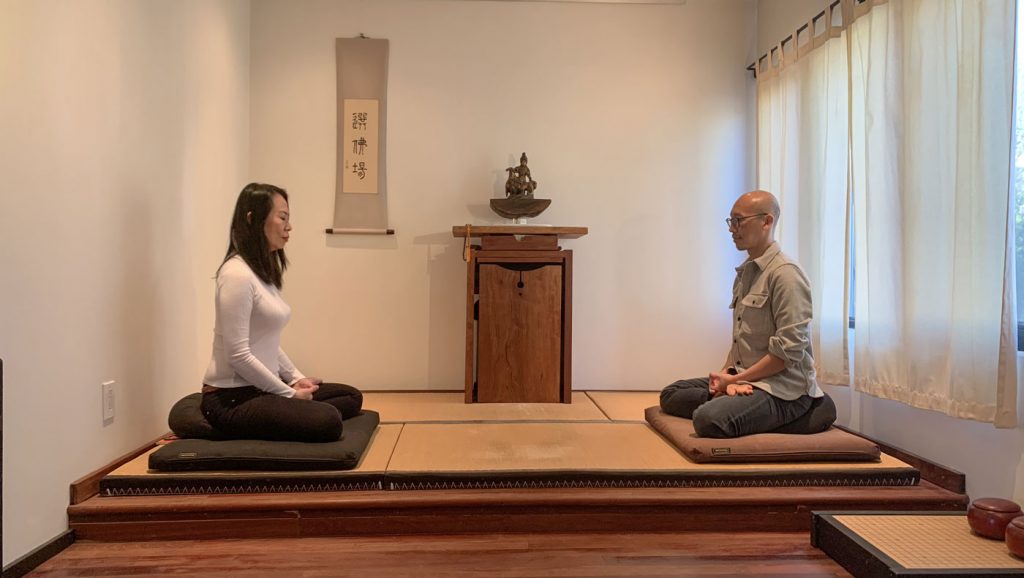
Written by Daphne Liu
Translated by H. B. Qin
Edited by Diana Chang, Ida Eva Zielinska
“Micro-Reflections on the Pandemic”
A blog series presenting the stories of three American households facing different aspects of the pandemic together, with wisdom.
Peter Lin and Joanne Chang
According to a February 2021 survey of U.S. adults by the American Psychological Association, since the COVID-19 pandemic started: 42% of respondents have gained weight; 67% experienced changes in their sleep schedule; nearly a quarter were more dependent on alcohol than in the past to cope with stress; while almost half of all those who are parents felt more stressed than before.
Taking note of the pandemic’s impact, American psychologist and professor Peter Lin and his wife, Joanna Chang, a concert pianist and music professor, turned to the internet for platforms to spread Buddhist Dharma through technology. The two are among the first scholars in the U.S. to promote mindfulness and Chinese Zen practice beginning 20 years ago, and they felt these practices have much to offer at this time.
Furthermore, according to Peter Lin, the best way to get over any disaster is to recognize one’s blessings in the face of suffering and live mindfully. This outlook is supported by Peter’s volunteer experience with Tzu Chi over the past 30 years, participating in international disaster relief efforts, alongside other family members.
The uniqueness and pragmatism of Tzu Chi is the recognition of one’s blessings in the face of suffering.
Peter Lin, Clinical Psychologist & Professor
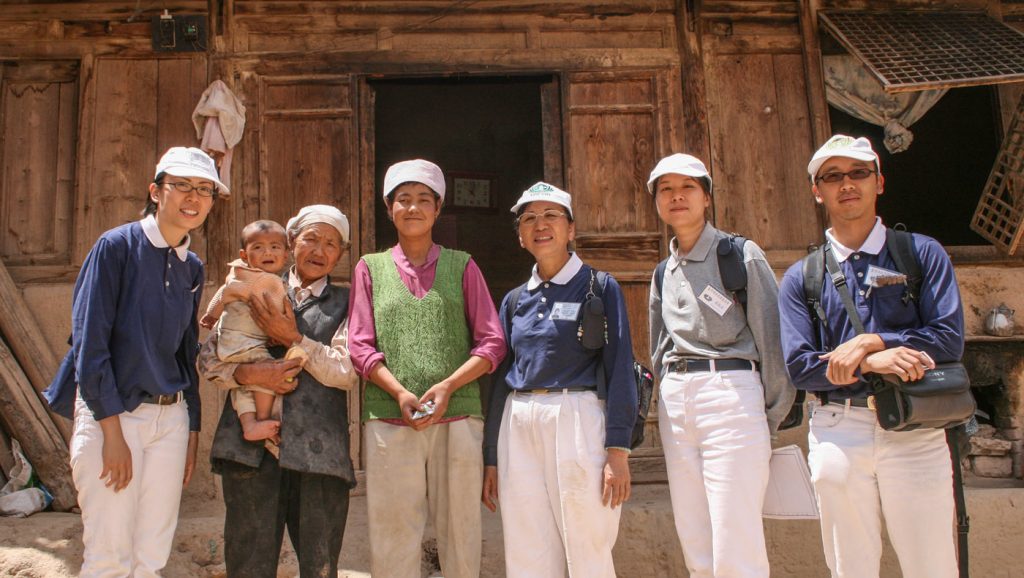
The current pandemic is providing a unique opportunity for reflection in Peter’s eyes. Additionally, an opening to introduce the wisdom in aspects of oriental culture.
Any disaster or epidemic should be a reminder for human beings to make an effort and reflect. The U.S. is a society advocating individualism; conflict is a natural result of the supremacy of individualism, while oriental culture advocates the juxtaposition of self-interest and altruism.
Peter Lin
So for Peter, while the freedom within individualism is of great value, the question becomes how to free oneself while also rendering liberty to others. In this regard, oriental culture has much to offer.
Peter and Joanne’s routine each morning after getting up from bed has always been meditation, “The sitting will last one burn of an incense stick, which is about 40 minutes to 45 minutes.” The habit of daily meditation that the couple has maintained for more than 20 years supports their promotion of reducing stress through Zen practice and mindfulness, as they experience their effectiveness personally.
For Peter, Buddhist Dharma and mindfulness have also become essential components in his Clinical Psychologist practice and his work as Associate Chair and Professor at St. Joseph’s College New York. He’s offered a course on mindfulness in the university’s psychology department for many years to introduce Buddhist Dharma and Zen practice and help make it understood, its benefits acknowledged.
Introducing Buddhist Dharma with the word ‘mindfulness’ is easier.
Peter Lin, Clinical Psychologist & Professor
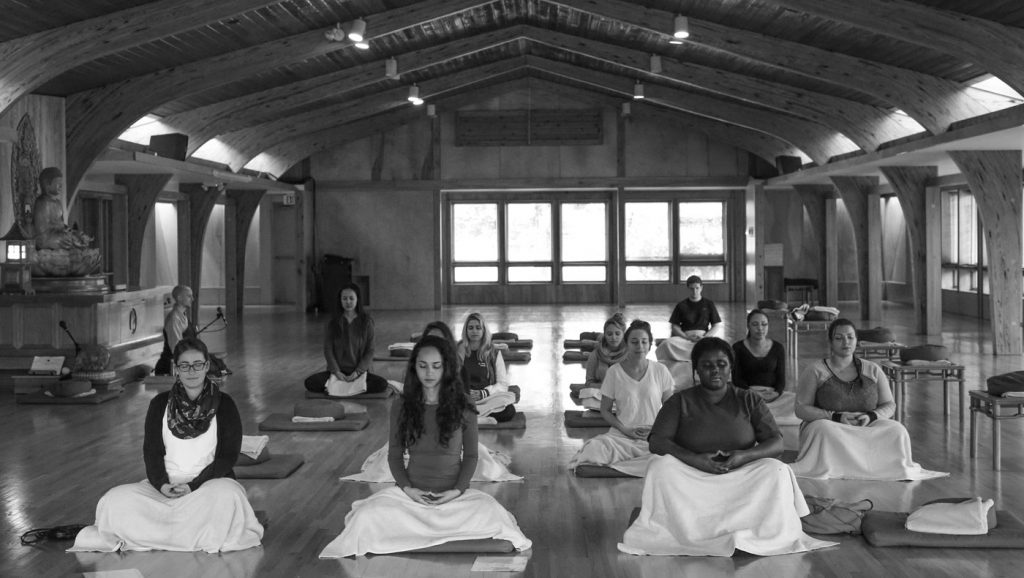
Peter Lin’s wife Joanna Chang, a concert pianist and Professor of Music at Queensborough Community College, City University of New York, is equally engaged in introducing mindfulness to her students, revealing its connection to music.
It's a practice of mindfulness, and as a musician, you have to be more delicate and sensitive, more perceptive.
Joanne Chang, Concert Pianist & Professor
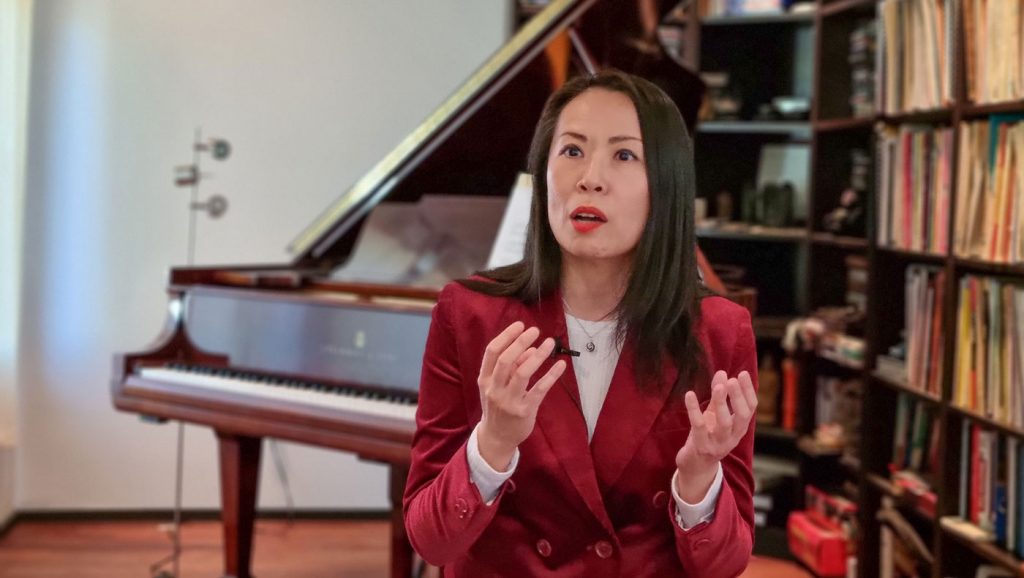
Joanne observed how students are under the dual pressures of academic learning and maintaining a livelihood since the pandemic. In response, she and a few fellow professors started offering courses on mindfulness to help students cope with all the stress and uncertainty. Joanne also integrates her Zen practice and Tzu Chi’s promotion of “mindfulness in every action,” which Tzu Chi volunteers strive to do while engaged in social service, into teaching music.
Taking advantage of their combined expertise, the couple worked with the Tzu Chi Center for Compassionate Relief, located at 229 E 60th Street in Manhattan, New York, to launch C.A.F.E 229 in September 2020. The talks and discussions center on various aspects of mindfulness and contemplative living, which can help combat the atmosphere of helplessness and fear during the pandemic.
The program draws speakers from psychology, health care, clinical research, religious practice and studies, philosophy, arts and culture, communications, global studies, and service-learning, all addressing the themes intrinsic to the C.A.F.E. name: Compassion in Action, Freedom, Enlightenment.
To date, luminaries such as the Buddhist monk and author Matthieu Ricard, who has been the French interpreter for the Dalai Lama since 1989, have been guests. In Ricard’s case, he appeared during the premiere of Karuna; a documentary Tzu Chi USA produced about the humanitarian aid activities of Karuna-Shechen, a non-profit he co-founded.
What C.A.F.E.229 tells people to ponder, upon reflection, is that the meaningfulness of life is not about longevity, rather, its depth and width.
Peter Lin, Clinical Psychologist & Professor
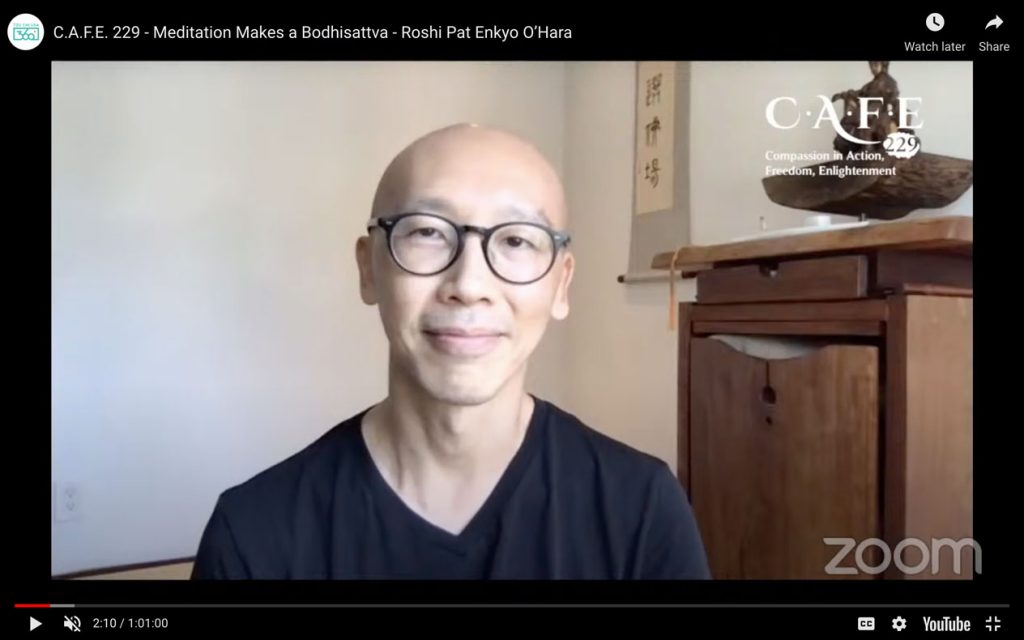
In February 2021, the program presented an art series with Joanna Chang as the host. Guests were masters in photography, martial arts, and music, who shared their philosophy of life, and how it’s reflected in their professional and spiritual life. The program unexpectedly opened the eyes of Joanna Chang’s American students and friends to the philosophy of Tzu Chi, which is an integral part of her life.
While Joanne could present her perspectives on music, she could also do more, saying, “I could share with my students … be compassionate and make contributions to society, bring your kindness to everyone. C.A.F.E.229 is a very good platform for me.”
Through the C.A.F.E.229 platform, Peter Lin and Joanne Change are offering tools to help people navigate the turbulence caused by the pandemic while also introducing Buddhism and the world of Tzu Chi.

While audiences may not be donning Tzu Chi volunteer uniforms or adhering to the teachings of Peter and Joanne’s spiritual guide, Dharma Master Cheng Yen, they will get a glimpse into Buddhist philosophy, wisdom, and practice.

